- Home
- Best Pet for Me
- Anole as a Pet
Anole as a Pet Could Be the Perfect Choice for Beginner Reptile Fans
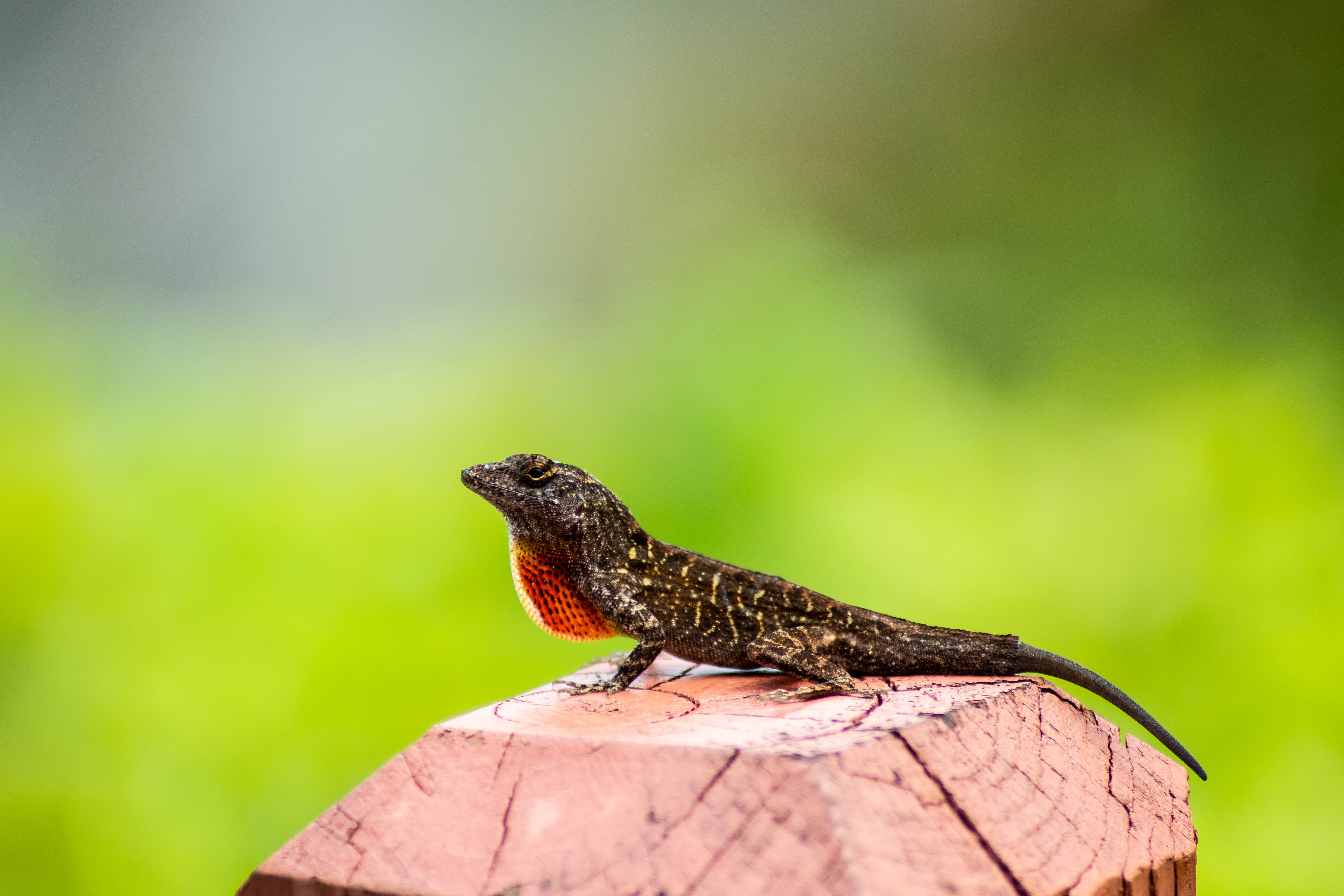 Photo by H R: https://www.pexels.com/photo/macro-shot-of-an-anoles-5802780/
Photo by H R: https://www.pexels.com/photo/macro-shot-of-an-anoles-5802780/If you are just starting out with rescuing reptiles, consider an anolesas a pet. Anoles work well with people who have little space in their home.
Anoles are native to the southeastern U.S. Green anoles are also called Carolina anoles, American anoles, Red-throated anoles, or American chameleons. They have bright green skin with a red fold of skin under their throats, but change color when humidity, temperature, mood, or their health changes. For example, they will be green if they are hot, and brown if they are cold. Actual chameleons change color to fit in with their surroundings as a camouflage. Anoles don't use their color changing abilities for camouflage.
They will disconnect themselves from their tail as a distraction if they are being chased by a predator. This will distract the predator so the anole can get away. It will even wiggle on its own for a little while. In about two months' time, the tail will grow back.
Is an Anole as a Pet Dangerous? Myths and Facts About These Popular Reptiles
Anoles aren't really dangerous. They may bite if very scared, but their bite won’t break the skin. You actually might injure their mouth by pulling away if they bite. Like many reptiles, they may carry salmonella or parasites. They manufacture a weak venom that won’t hurt a human.
Do Anoles Like People Understanding Their Behavior and Social Preferences
They should not be handled too much because they could get hurt and stressed out. They are pretty interesting to watch though.
Understanding The Sleep Patterns of Anoles
They are usually awake during the day. When they sleep at night, they like to rest on plants. If it is cold, they might burrow under ground a little bit
How Large Do Anoles Grow?
About 5 - 8 inches is as long as they get.
Temperature and Humidity: Ideal Conditions for a Healthy Pet Anole
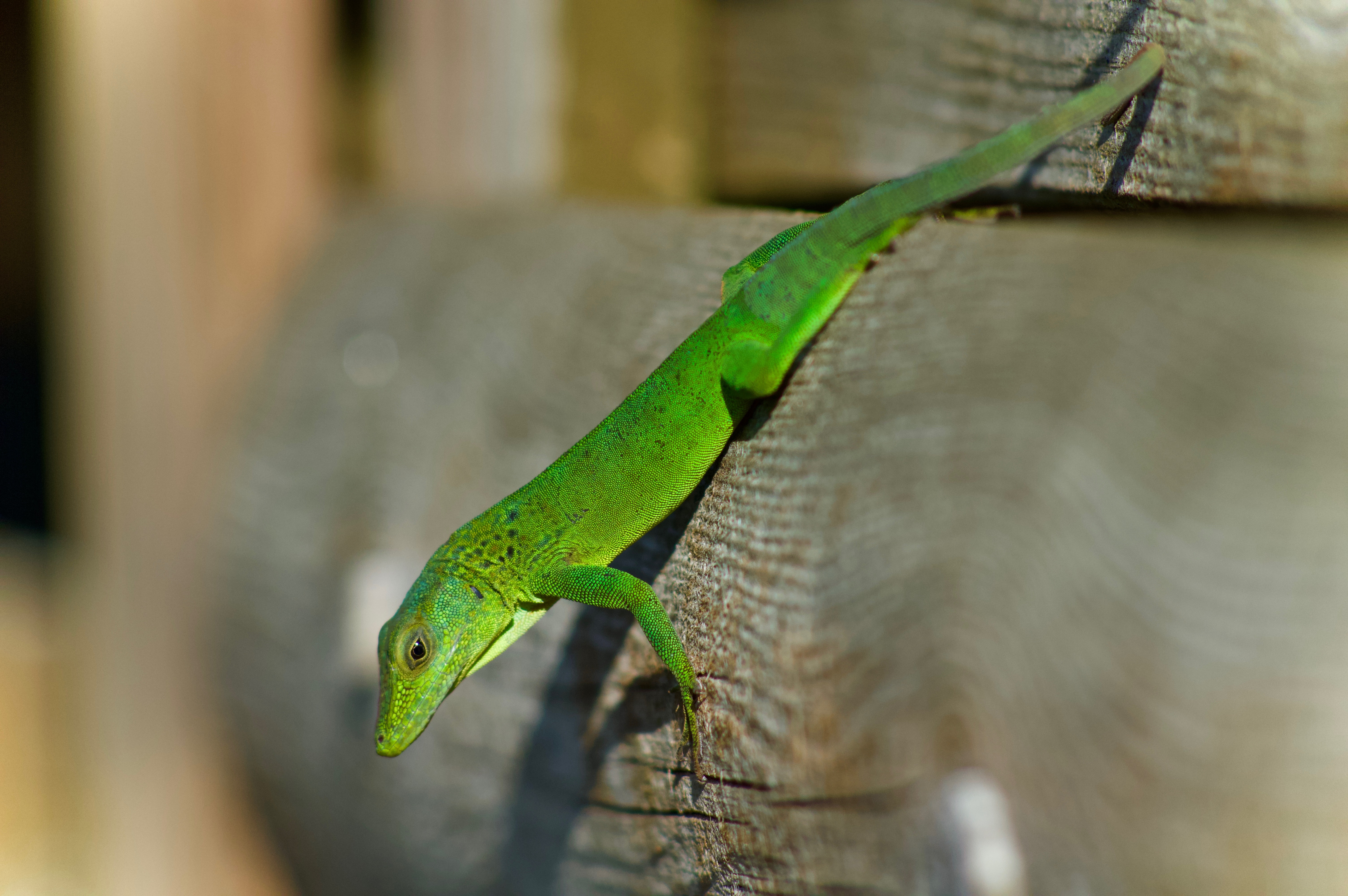 https://www.pexels.com/photo/macro-shot-of-an-anoles-5802780/
https://www.pexels.com/photo/macro-shot-of-an-anoles-5802780/They like high humidity. The habitat should have 60%-70% humidity. You can mist the habitat during the day to help keep the humidity up. You can also cover a part of the screen on top to keep moisture in.
They are cold-blooded, so they need to be kept warm. The ideal temperature is between 77 degrees F and 86 degrees F, with about 5 degrees cooler at night. There should be a warm place for them to lounge and that should be on a rock or piece of wood near a heat lamp with a temperature of about 90 degrees.
Heat lamps and UV lamps are needed to be sure the temperature is good in their tank.
Anoles Habitat Essentials: Tank Size, Temperature, and Plants for a Happy and Healthy Environment
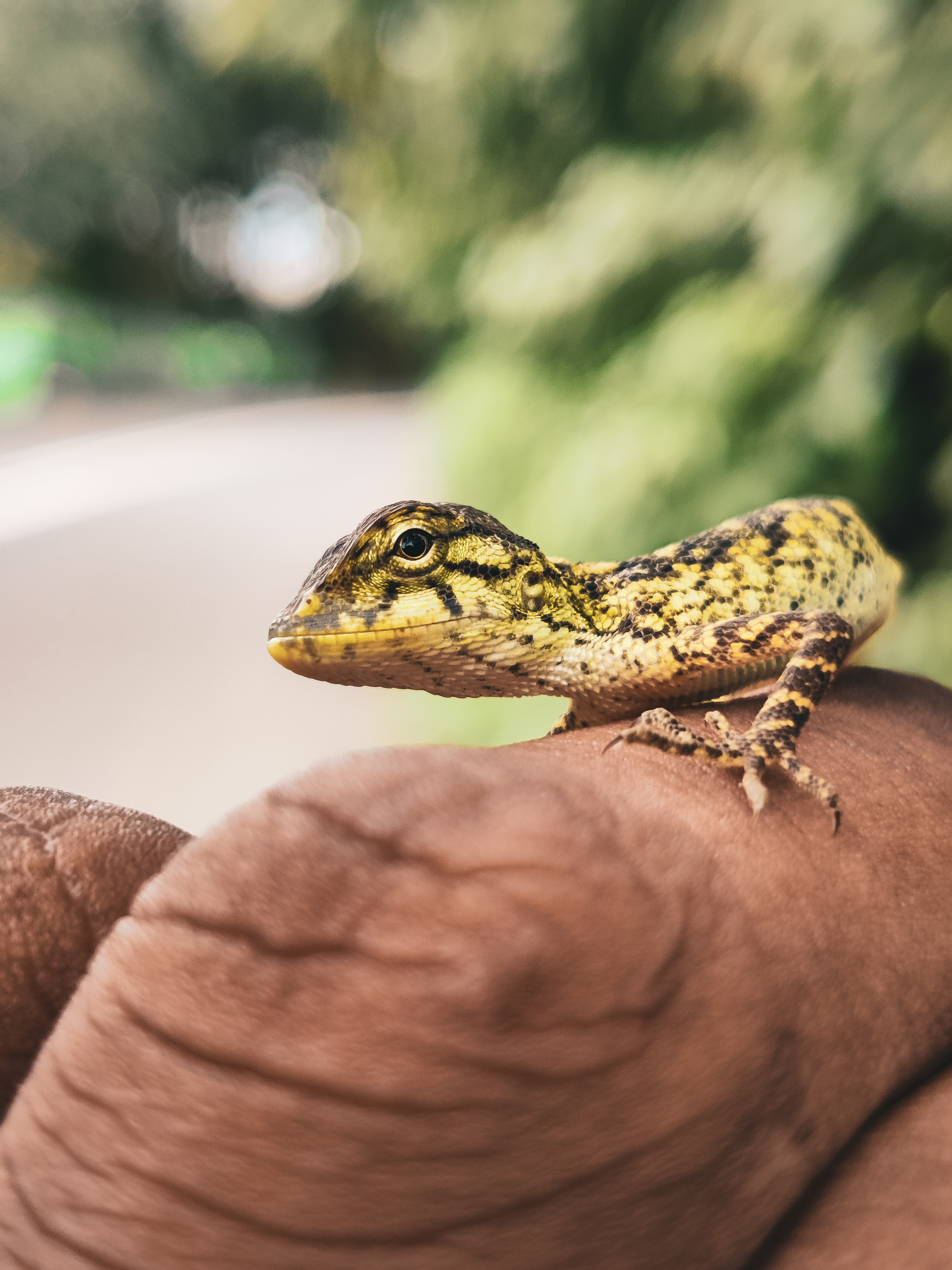 Photo by Keith Lobo: https://www.pexels.com/photo/crop-anonymous-person-holding-small-anolis-lizard-in-park-9272442/
Photo by Keith Lobo: https://www.pexels.com/photo/crop-anonymous-person-holding-small-anolis-lizard-in-park-9272442/A 10-gallon aquarium is ok for one or two of these little guys. Three or four anoles would require at least a 20-gallon tank. They would love to have an even bigger tank, but these are minimum measurements.
A screen top provides enough ventilation for anoles. There should be a space in the tank that is on the hot end of their comfort spectrum and another space that is on the cool end.
Don’t house more than one male anole as a pet in your habitat. Two males have a tendency to be territorial and fight each other.
There should be lots of different plants in the habitat for them to climb on and hide under. Plants also help to keep the humidity up. Include some rock or pieces of wood for them to lounge on and set up some caves for them to hide in. You should have a lounging rock underneath a heat lamp to simulate laying in the sun for them.
You can use heat lamps, UV lamps, and heating pads made for reptiles
The floor of the tank should be soil, coconut fiber, or peat moss.
They might like to go for a dip in their water dish, so it should be big and deep enough for them to wade in. The water should be chlorine free. Some anoles won’t drink from a bowl, so you should make sure that all the plants in the habitat are misted regularly and this will be how the anole get their water.
Anoles Diet: Live Insects, Fruit, and Water Sources for a Balanced Feeding Routine
They like to eat insects such as roaches, silkworms, red worms and crickets. They will only eat live prey that is about half the size of their head. They won’t see bugs unless the bug is moving. They should eat every day or every other day. You can put calcium and vitamin dust on their food to improve their nutrition.
They also might like to eat small pieces of fruit or fruit baby food.
The water they get will be from moist leaves in their tank.
Anoles Lifespan and Care Tips: Ensuring Healthy Growth and Proper Shedding for Your Pet
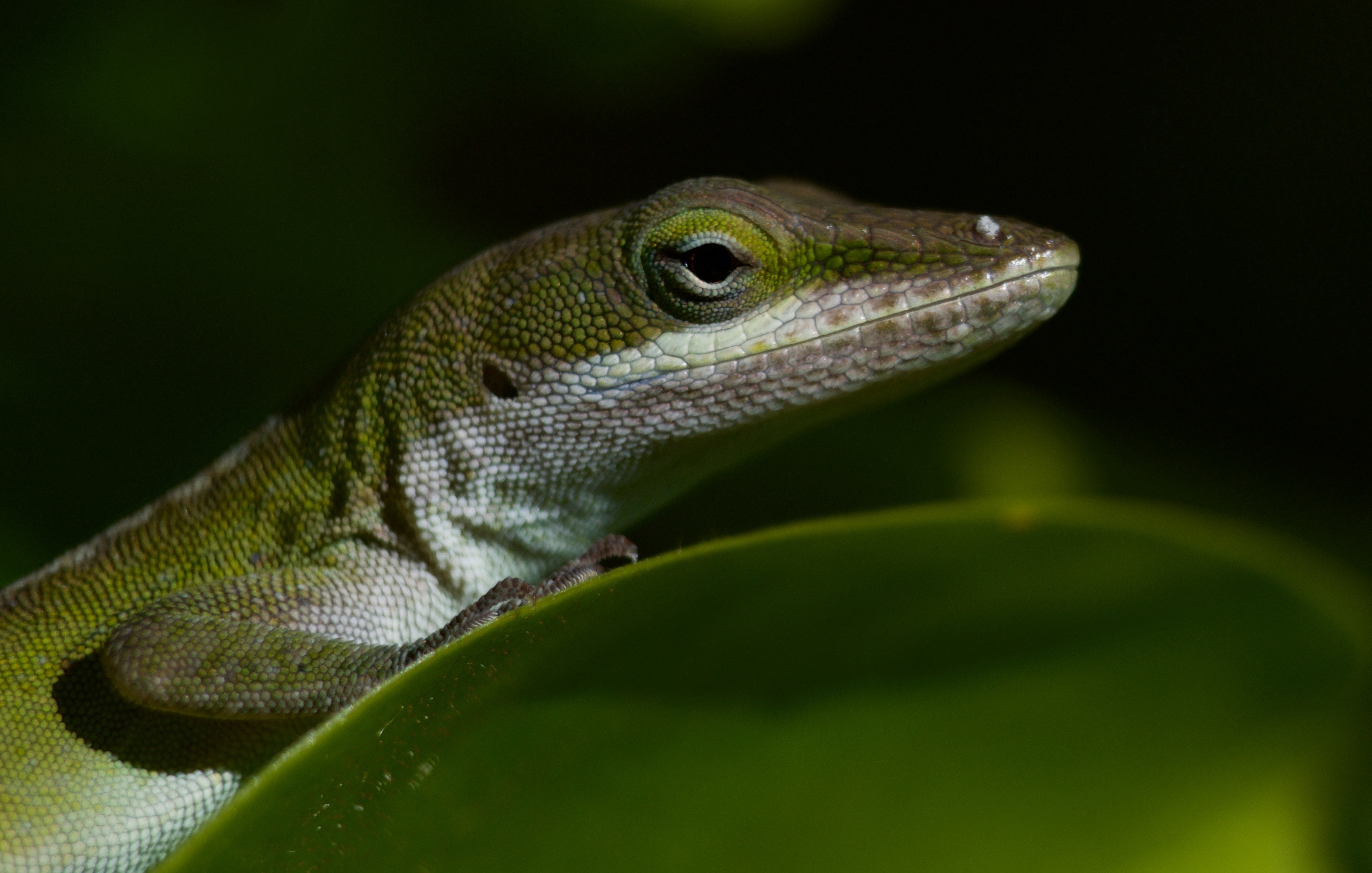 Photo by Huy Lam: https://www.pexels.com/photo/close-up-photo-of-a-green-anole-15591969/
Photo by Huy Lam: https://www.pexels.com/photo/close-up-photo-of-a-green-anole-15591969/An anole as a pet can live for 2 - 4 years if it is not stressed too much and have a habitat and diet that is good for them.
They will shed their skin in patches as they grow, not all at once. It will come off as it needs to so you shouldn’t try to peel it off yourself. High humidity helps them to shed and you might want to make a box for them when they are shedding that is just big enough to fit the anole inside of it with very moist moss on the bottom. This moist box will help them shed. You can also spray them with water and massage the shedding area, without actually peeling it.



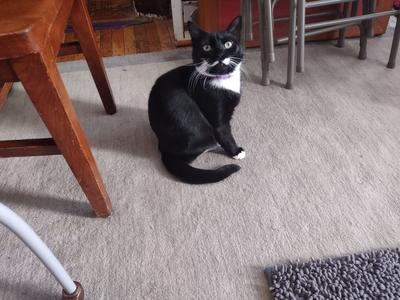


New! Comments
Have your say about what you just read! Leave me a comment in the box below.